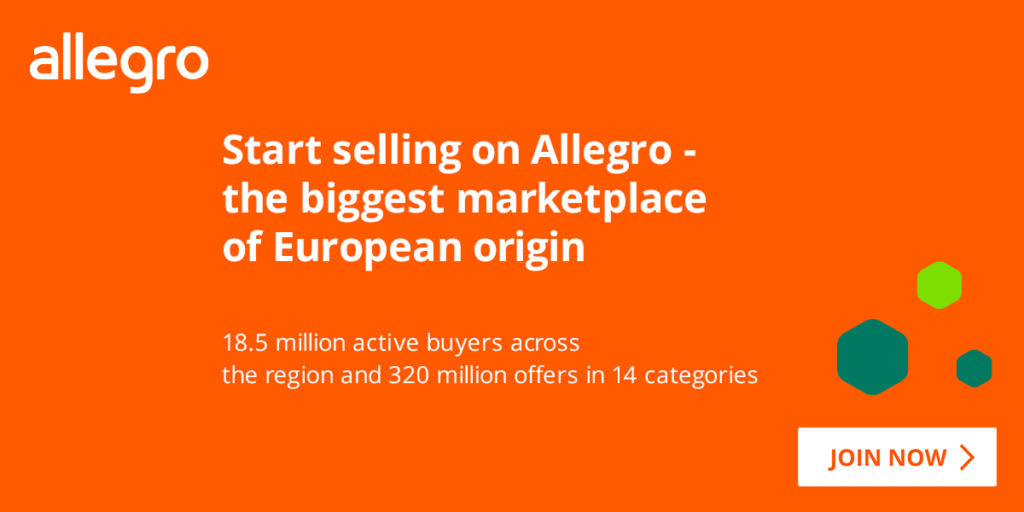Success Factors in Marketplace Business: Impatient Fail in the Long Run
Written by
Kinga EdwardsPublished on

If you want to be active on the one online marketplace in Poland, you can’t get past Allegro – the local offering is too dominant. In an interview, Emilia Gregorczyk, Business Development Partner at Allegro International Sellers, exhibitor at E-Commerce Berlin Expo, explains how to overcome entry hurdles, what distinguishes a good local and international marketplace strategy, and who stands out in her views.
What potential do marketplaces hold for manufacturers and retailers?
Marketplaces offer all types of sellers direct access to a large group of digitally active consumers. In Poland alone, 22 million visitors are active on Allegro every month. This is traffic that retailers can leverage immediately. Moreover, when the platform covers multiple countries, sellers can target more markets than with DTC-only channels. It is easier to overcome cross-border barriers to entry through a platform that has already built trust between sellers and local buyers.
There are low or no barriers to entry and no investment in infrastructure is required, so merchants can easily test their products in new markets. If the offer is well received, companies have the chance to expand from the start. Otherwise, such tests incur little cost. Sellers can also target different customer groups and tailor their product offerings in each channel to optimize overall sales.
Advertising should not be forgotten. The big advantage of marketplace advertising is first-party data based on millions of logged-in user accounts. This means direct access to behavioral and transactional data that is “bulletproof” in terms of legal requirements and cookie restrictions.
What are the characteristics of a good marketplace strategy?
First and foremost, determine your target and get well informed. Do you want to create a vertical or a horizontal marketplace? Is a global or local offering in demand? In some cases, expanding with a global player is both practical and sensible. In some countries, however, consumers prefer local marketplaces. This is the case in Poland, where Allegro is the most popular online marketplace for 87 percent. However, you will only know something like this if you thoroughly research the market you are interested in.
Once you have decided on your marketplace, you should use free information sources to understand the dynamics of the platform. This knowledge will help you get off to a good start and give you a competitive advantage. Check your competition to see if there is a niche for certain products. Think about pricing strategy: it pays to invest early to build awareness.
Take care of the basics: set up an efficient delivery model, as fast, cost-effective and convenient delivery is of immense importance these days. It’s difficult to succeed if you don’t take care of it from the start. Also, make sure you have high-quality content and choose effective marketing and advertising tools. Last but not least, the hallmark of a good marketplace strategy is constant concern for the customer. An optimal shopping experience before, during and after the purchase will lead to positive reviews and attract more customers.

And are there companies that stand out in your view?
One can identify strong players in different Allegro categories. Some focus on sales activities, while others stand out for their activities related to brand awareness. They all have the same things in common: they focus on products with lower competition or maturity and those with sufficient margins to grow. They strive to solve problems quickly to avoid negative reviews and get lots of positive ones. They take care of the basics mentioned earlier: Delivery, Content, Customer Service, and Marketing. They experiment, observe, adapt, and scale.
In summary, those that excel in the marketplace take care of their foundational elements and deploy commerce media based on a strategy tailored to their needs. Those that are impatient, seek short-term solutions, or engage in ad hoc activities will fail in the long run.
***


